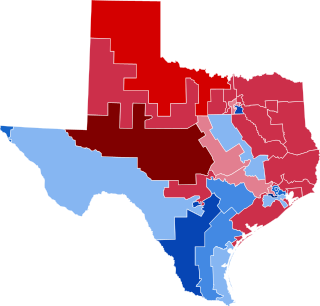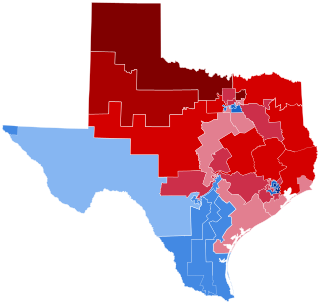Election Results
District 2
Incumbent Delia Garza retired to run for Travis County Attorney.
Declared [1]
- Vanessa Fuentes(party affiliation: Democratic) [2]
- Casey Ramos, 2016 candidate for Austin City Council District 2
- David Chincanchan (party affiliation: Democratic)
Withdrawn
- Alex Strenger (endorsed Ramos)
Declined
- Delia Garza, incumbent councillor (running for Travis County Attorney)
- Organizations
- AURA
- Austin Environmental Democrats
- Austin Tejano Democrats
- Black Austin Democrats
- Central Austin Democrats
- Friends of Austin Neighborhoods
- Run For Something
- South Austin Democrats
- University Democrats
- Labor unions
- AFSCME Local 1624
- Amalgamated Transit Union
- Austin Central Labor Council
- Austin Firefighters Association
- Education Austin
- IBEW Local 52
- United Brotherhood of Carpenters and Joiners
- Workers Defense Action Fund
- Newspapers
- Labor unions
- Austin EMS Association
- Organizations
- Run For Something
- Newspapers
- Local officials
- Margaret Gómez, Travis County Commissioner, Precinct 4
- Marcos de Leon, former Travis County Commissioner, Precinct 4
- Organizations
- Community Not Commodity
- Notable individuals
- Mike Levy, founder, Texas Monthly
District 4 [1]
Incumbent Greg Casar ran for second full term.
Declared
- Greg Casar, incumbent councillor (party affiliation: Democratic) [3]
- Louis Herrin III
- Ramesses II Setepenre
District 6 [1]
Incumbent Jimmy Flannigan ran for a second term. He was defeated in the December 15th runoff election by Mackenzie Kelly.
Prior to the 2020 election, the partisan breakdown of the Austin City Council was 11–0 in favor of the Democratic Party. Following Flannigan's runoff, the balance was shifted to a 10-1 Democratic majority.
he lone Republican on council, she is widely expected to face a competitive race in a district that voted for Joe Biden over Donald Trump by a margin of 33.3% in the 2020 Presidential election.
Declared
- Mackenzie Kelly(party affiliation: Republican)
- Jimmy Flannigan, incumbent councillor (party affiliation: Democratic) [4]
- Jennifer Mushtaler (party affiliation: Democratic)
- Dee Harrison
Declined
- Don Zimmerman, former District 6 councilor (endorsed Kelly)(party affiliation: Republican)
- Local officials
- Gerald Daugherty, Travis County Commissioner, Precinct 3
- Lee Leffingwell, former Mayor of Austin (Democrat)
- Don Zimmerman, former city councillor from District 6
- Ellen Troxclair, former city councillor from District 8
- Organizations
- Travis County Republican Party
- Notable individuals
- Matt Mackowiak, Chair, Travis County Republican Party
- Jennifer Mushtaler, 2020 candidate for District 6 (Democrat)
- Local officials
- Lee Leffingwell, former Mayor of Austin
- Organizations
- Central Austin Democrats
- Notable individuals
- Bill Bunch, Executive Director, Save Our Springs Alliance
District 7 [1]
Incumbent Leslie Pool ran for a second term.
Declared
- Leslie Pool, incumbent councillor (party affiliation: Democratic)
- Morgan Witt (party affiliation: Democratic)
Declined
- Natalie Gauldin, 2016 candidate for District 7 (party affiliation: Democratic)
- Organizations
- Austin Sierra Club
- Labor unions
- Austin EMS Association
- Austin Firefighters Association
- Workers Defense Action Fund
- Newspapers
- Organizations
- AURA
- Austin Young Democrats
- Friends of Austin Neighborhoods
- Sunrise Movement Austin
- University Democrats
- Notable individuals
- Greg Anderson, District 6 Planning Commissioner
- Jeb Boyt, 2014 candidate for Austin City Council District 7
District 10 [1]
Incumbent Alison Alter ran for a second term.
Declared
- Alison Alter, incumbent councillor (party affiliation: Democratic)
- Jennifer Virden (party affiliation: Republican)
- Pooja Sethi (party affiliation: Democratic)
- Robert Thomas (party affiliation: Republican)
- Belinda Greene
- Bennett Easton
- Noel Tristan
Declined
- Sheri Gallo, former councillor for District 10 (2015–2017)
Proposition A (November 2020)
Approving the ad valorem tax rate of $0.5335 per $100 valuation in the City of Austin for the current year, a rate that is $0.0875 higher per $100 valuation than the voter-approval tax rate of the City of Austin, for the purpose of providing funds for a citywide traffic-easing rapid transit system know as Project Connect, to address traffic congestion, expand service for essential workers, reduce climate change emissions, decrease traffic fatalities, create jobs, and provide access to schools, health care, jobs and the airport; to include neighborhood supportive affordable housing investments along transit corridors and a fixed rail and bus rapid transit system, including associated road, sidewalk, bike and street lighting improvements, park and ride hubs, on-demand neighborhood circulator shuttles, and improved access for seniors and persons with disabilities; to be operated by the Capital Metropolitan Transportation Authority, expanding its funds to build, operate and maintain the fixed rail and bus rapid transit system; the additional revenue raised by the tax rate is to be dedicated by the City to an independent board to oversee and finance the acquisition, construction, equipping, and operations and maintenance of the rapid transit system by providing funds for loans and grants to develop or expand transportation within the City, and to finance the transits supportive anti-displacement strategies related to Project Connect. Last year, the ad valorem tax rate in the City of Austin was $0.4431 per $100 valuation.[ citation needed ]
| Choice | Votes | % |
|---|---|---|
| | 242,457 | 57.92 |
| No | 176,166 | 42.08 |
| Total votes | 418,623 | 100.00 |
| Source: https://services.austintexas.gov/election/byrecord.cfm?eid=208 | ||
Proposition B (November 2020)
The issuance of $460,000,000 in tax supported general obligation bonds and notes for planning, constructing, reconstructing, and improving sidewalks, urban trails, bikeways, bridges, roads, streets, intersections, and related utility and drainage infrastructure for the roads and streets; improving traffic signal synchronization and communications and control systems and acquiring and installing traffic signals and related technology to implement traffic safety and traffic fatality reduction strategies; and acquiring land and interests in land and property necessary to do so; and the levy of a tax sufficient to pay for the bonds and notes.[ citation needed ]
| Choice | Votes | % |
|---|---|---|
| | 276,257 | 67.05 |
| No | 135,730 | 32.95 |
| Total votes | 411,987 | 100.00 |
| Source: https://services.austintexas.gov/election/byrecord.cfm?eid=208 | ||













